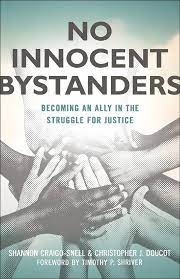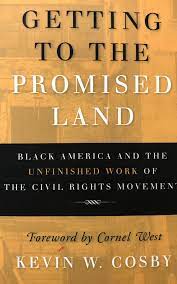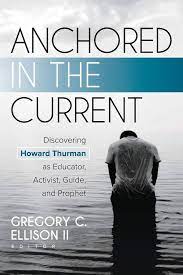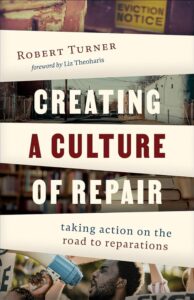 No Innocent Bystanders: Becoming an Ally in the Struggle for Justice by Shannon Craigo-Snell and Christopher J. Doucot
No Innocent Bystanders: Becoming an Ally in the Struggle for Justice by Shannon Craigo-Snell and Christopher J. DoucotThe struggle for justice is ongoing. In answering the biblical call to act justly and love mercifully, can Christians cross lines of privilege to walk humbly not only with God but with their marginalized neighbors as well? No Innocent Bystanders looks at the role of allies in social justice movements and asks what works, what doesn’t, and why. It explains what allies legitimately can accomplish, what they can’t, and what kind of humility and clarity is required to tell the difference.
This book is a start-up guide for spiritual or religious people who are interested in working for social justice but don’t know how or where to begin. Drawing on the lessons of history, the framework of Christian ideas, and the insights of contemporary activists, it offers practical guidance on how to meaningfully and mindfully advocate alongside all who struggle for a more just society.
Discussion questions at the end of each chapter make it a highly practical book for study and leadership groups.
 2. Getting to the Promised Land: Black America and the Unfinished Work of the Civil Rights Movement by Kevin W. Cosby
2. Getting to the Promised Land: Black America and the Unfinished Work of the Civil Rights Movement by Kevin W. CosbyToo often, all oppressed people in America are lumped together under the moniker “people of color,” as if each group’s experience under the yoke of systemic racism has the same economic and social repercussions. But the American Descendants of Slavery (ADOS) hold a unique claim to economic and reparative justice: for ADOS, after all, is the only group whose ancestors were forcibly brought to America, enslaved, built much of the wealth of the country, yet continue to be specifically excluded from the same social, political, and economic rights of other Americans. To that end, Rev. Dr. Kevin W. Cosby lays out the first theology of the ADOS movement, turning the traditional lens of Black liberation theology from Moses leading escaped Hebrew slaves in Exodus to other biblical leaders like Solomon, Daniel, and Nehemiah.
In the stories of Nehemiah and other biblical leaders, Cosby finds inspiration on how to rebuild Black America including the necessity of government reparations for ADOS. Cosby calls all Americans to move from a place of relative nonengagement and detachment to a place of active support of ADOS’s efforts for justice and healing.
 3. Anchored in the Current: Discovering Howard Thurman as Educator, Activist, Guide, and Prophet by Gregory C. Ellison II
3. Anchored in the Current: Discovering Howard Thurman as Educator, Activist, Guide, and Prophet by Gregory C. Ellison IIHoward Thurman was famously known as one of the towering giants of American religion in the twentieth century. His writings have influenced some of the most important religious and political figures of the last century, from Martin Luther King to Barack Obama. Theologians such as James Cone and Cornel West regularly signal their indebtedness to him. He was a mystic, a preacher, an educator, a theologian, and much more. It is impossible to understand the African American church today without an appreciation for his contributions.
And yet, while Thurman’s name is often recognized, his seminal ideas have not received the attention they deserve. In this volume, internationally known leaders like Marian Wright Edelman, Parker Palmer, and Barbara Brown Taylor invite the reader into creative engagement with Thurman’s writings. Anchored in the Current illuminates how Thurman’s life and wisdom lead these influential names on the ancient quest to connect with the Ultimate, all while discovering the contemporary need to seek racial justice and sharpening the minds and faith of those who come after us. Readers will find important and enduring answers in the works of this indispensable prophet and teacher.
 4. Creating a Culture of Repair: Taking Action on the Road to Reparations BY Robert Turner
4. Creating a Culture of Repair: Taking Action on the Road to Reparations BY Robert TurnerThe inequality remains even after laws and policies have been corrected. Calculating and implementing financial reparations will require large-scale government action, which can feel out of reach or overwhelming for the average person. Robert Turner provides an accessible guide for individuals and groups wanting to influence significant institutional action while also acting on their own to repair the effects of racial injustice in our communities, churches, and spheres of influence. Dividing into categories of individual, social, institutional, and spiritual repair, Turner offers the longest list of reparations currently published, with more than one hundred actions readers can begin practicing and advocating for to help balance economic injustice, undo hurtful decisions from decades past, and rally public support for bold and principled legislation.